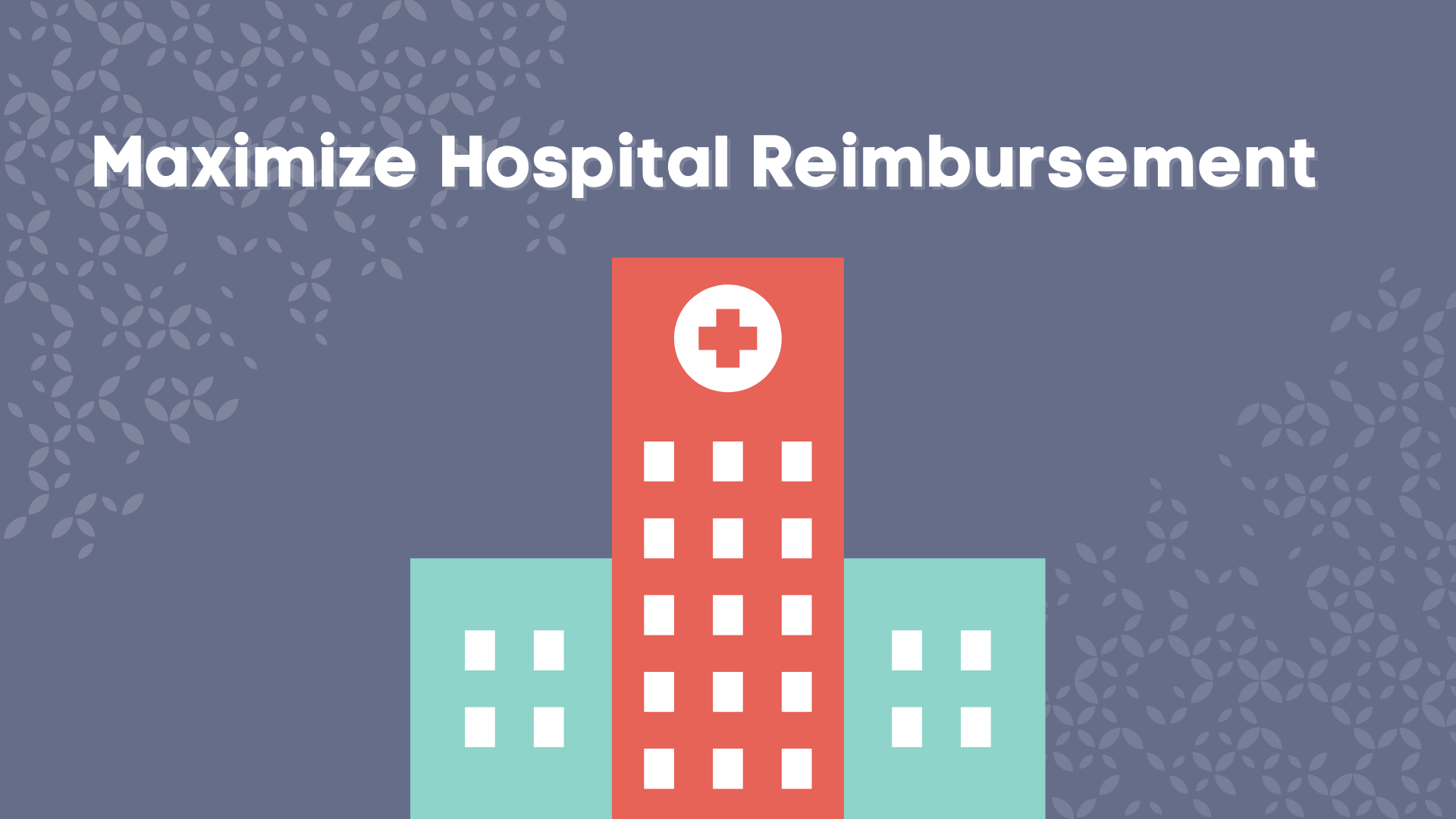Hospital reimbursement is one of the only transactions where the request for payment is determined after the service has been rendered versus up front or at the time of the service. When a hospital seeks payment, they are actually seeking reimbursement for costs they’ve already incurred.
Reimbursement comes from several entities: Centers for Medicare and Medicaid Services (CMS), private insurance, and patients. CMS uses a system called the inpatient prospective payment system (IPPS). In order to receive Medicare reimbursement, hospitals must strictly follow CMS’ rules, regulations and coding requirements, which exceed 130,000 pages.
Hospitals also work with more than 1,300 private insurers, each with different insurance plans and multiple and unique requirements for billing and reimbursement.
To maximize hospital reimbursement, it takes a considerable number of resources and time, both of which are in short supply within healthcare organizations. Every year, hospitals lose money to both Medicaid and Medicare and patient non-payment. In fact, in 2020 the American Hospital Association estimated at least $323.1 billion in hospital financial losses. One way to reduce losses is to find ways to maximize your reimbursement.
How can you maximize reimbursements?
- Avoid Commonplace Coding Errors
Coding errors within the electronic health record (EHR) are common especially in the Emergency Department where the patient comes first, and accurate coding comes much farther down the list. As obvious and simple as this fix seems, medical billing errors cost hospitals an average of $68 billion annually. How much revenue are you losing due to coding errors that could be reduced or even eliminated?
- Evaluate your Charge-to-Reimbursement Ratio
The charge-to-reimbursement ratio is the fixed amount charged for a service compared to the amount you are reimbursed from CMS, private insurance or the patient. The ideal ratio would be 1:1, of course, but the goal is to get the ratio as close to even as possible. This ratio should be calculated at both the cost center level and hospital wide. If your ratio is out of whack, it’s time to assess your chargemaster, or the pay schedule previously agreed upon with payers. Also, a review of any reimbursement denials or delays from CMS should be corrected as soon as possible.
- Hire a Team with Experience and Expertise in Coding, Billing and Collections Management
Often hospital financial teams rely on SaaS revenue cycle systems to maximize hospital reimbursements. While these software solutions play a vital role in automating much of the revenue cycle management processes, it takes specialized skills to manage the system, understand and correct codes when needed, read cost reports, follow up with payers and patients to submit clean claims, receive payment and more.
- Simplify Patient Billing
When patients can’t understand medical bills, they are skeptical of them and do not pay. List in clear language the care for which the patient is being charged versus the care insurance covers. In addition, make sure your staff is qualified and available to answer patient questions during payment follow up.
- Ensure Regulatory Guidelines are Strictly Followed
The federal and state regulations for hospitals and billing – especially when it comes to CMS reimbursement – are long and tedious. However, by making a mistake you face payment delay or even denial. You could also face penalties and worse. While expertise and experience are a priority for coding and billing staff, the same is important for staff when it comes to compliance with legal regulations and guidelines. In fact, it may be even more important.
In order to maximize hospital reimbursement, you must create tight processes and rigorously adhere to them, ensure oversight of charges and reimbursement, and hire experienced staff or outsource to an agency that can manage your revenue cycle management process from top to bottom.
Gryphon has been helping hospitals like yours for years. In fact, we’re healthcare professionals, too. Our hands-on specialists are based in the U.S. and work with your team to ensure your claims are filed accurately and timely, managed, followed, and acted upon so that you receive optimal reimbursement. Learn more here.

